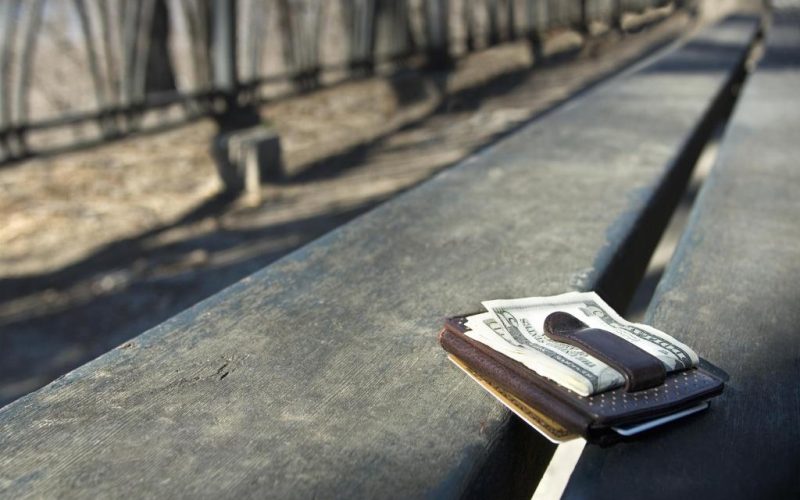Dear Eric: When my only son and his wife got married and had kids, I was informed that Christmas Day would just be for them to celebrate. I said OK.
For decades, I have given my son and his family (wife and two kids) really nice gifts for Christmas. We are talking about hundreds of dollars. For a while, I would receive a small gift, such as a bottle of homemade vanilla, a rose-scented tin of salve made by a friend of the wife or a coffee cup or some such as a gift from the family. Same with my birthday. I have never received a gift from the grandkids.
Last year, I let them know I would no longer be “exchanging” gifts with the parents but gifts to the grandkids (who are now teenagers with jobs) will continue. That year, I got them electronics and hoodies. I got nothing from anyone. Not even an acknowledgement from the kids. I have always had to deliver the gifts or call to see if they received them. This year, it is only going to be a Christmas card. Am I being overly sensitive?
– Empty Stocking
Dear Stocking: No, you are not being overly sensitive. Every family has their own traditions and needs. And no one is obligated to give – or accept – a gift. But it sure does make me sad that your desire to make this holiday special isn’t being reciprocated.
Part of it may be a misalignment of expectations. You’ve given generously, into the hundreds of dollars. I’m curious if your son and daughter-in-law have different values or wants around gifting that are either not being expressed or not being heard. They should tell you clearly.
Similarly, when you decided to stop giving gifts to the adults, I’m curious if your expectations were that your son would realize that you weren’t getting what you wanted and make a change.
It’s worth talking it through a little more but try to focus on the want behind the want. I suspect that what you’re craving is connection – and perhaps an invitation to the family Christmas. It makes sense that you’d try to show your love from a distance through gift-giving and it makes sense that it would hurt not to have it reciprocated. But perhaps the tradition of gifts is getting in the way on both sides. If you’d like to be invited or would like to find an alternate way of celebrating and being together, that’s a great gift to ask for.
Dear Eric: I was riding my bicycle when, unbeknownst to me, my wallet fell out of my pocket. My driver’s license, credit cards and about $200 in cash were in the wallet. Later that day I received a telephone call from a cyclist who found my wallet on his ride and told me that I could come over to pick it up. What, if any, reward would be appropriate? I gave a $30 bottle of wine.
– Grateful Cyclist
Dear Cyclist: How lucky that your path crossed with such a good fellow citizen! Etiquette experts agree that the amount of a reward in situations like this is really up to you. Often people take into account the amount of money in the wallet or one’s own personal financial situation. If you don’t have cash to spare, a gift or some other gesture is perfectly fine. So, the bottle of wine you gave works. My only suggestion, however, would be that, if this ever happens again (fingers crossed your wallet stays in your pocket from now on), you check with the recipient to make sure that they drink wine. It’s the thought that counts, but you don’t want your grateful efforts to put someone else in an uncomfortable or dangerous situation.
Dear Eric: I wanted to offer some sympathy and support to “Used to be Dad,”, a partnered gay dad whose teenage son changed his name from “Dad” to his given name in the teen’s cellphone.
I’m also a married gay man with three teen sons adopted through the foster care system. We tried “Dad X” and “Dad Y” using first initials, to no avail. It finally worked out that we are both Dad. If both dads are in the same room when they ask something, one of us answers. If they wanted an answer from the one who didn’t reply, they will say, “I meant Other Dad,” or our given name. The love is still always there, and the nomenclature on their phones isn’t really all that important in the long run.
– Dad, and/or Other Dad Sometimes
Dear Dad: This is a helpful lesson that can apply to so many situations. Oftentimes, it’s not the name that makes the difference, it’s the relationship and the feelings involved.
(Send questions to R. Eric Thomas at eric@askingeric.com or P.O. Box 22474, Philadelphia, PA 19110. Follow him on Instagram and sign up for his weekly newsletter at rericthomas.com.)
©2024 Tribune Content Agency, LLC.








